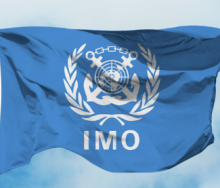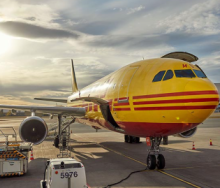The South African Maritime Safety Authority (Samsa) has confirmed the lifting of a moratorium on issuing permissions in Algoa Bay for offshore refuelling operations.
The association said that “following a Samsa Board decision in line with its legislated mandate, the Authority undertakes to process applications pertaining to offshore operations in Algoa Bay, without delay.”
But the ongoing delay, claims the Maritime Business Chamber (MBC), is costing South Africa’s maritime trade millions in potential tax revenue since the South Africa Revenue Service (Sars) detained four refuelling barges last September, exacerbating Algoa Bay’s bunker services capacity.
As the country’s only offshore bunker stop, significant revenue could have been made through vessels avoiding transits through the Suez Canal because of Houthi militants attacking maritime traffic in the Red Sea.
In January, an increase of as much as 53% had been reported in maritime traffic around the Cape of Good Hope.
However, few ships are stopping to refuel in Algoa Bay because of capacity constraints related to service inadequacy, preferring instead to use bunker services in Port Louis and Singapore.
The Port of Walvis Bay, to a lesser degree, has also been cited as an alternative bunker stop to the potential delay of refuelling at Algoa Bay.
In the meantime, vessel traffic around the Cape continues to increase in volume.
One of the last lines to have persisted with the shorter east-west way through the Suez, CMA CGM, earlier this month also pulled vessels off the route connecting the Mediterranean with the Gulf of Aden.
MBC executive chairperson Unathi Sonti bemoaned the country’s failure to benefit from increased ocean cargo voyages around the Cape, saying that ordinarily, over and above the 13,000+ vessels calling at the country’s ports, about 30,000 commercial ships pass through South African waters.
That figure is anticipated to have dramatically increased because of continued Houthi attacks in opposition to Israel's war on Gaza.
Sonti confirmed that Samsa had informed stakeholders that bunker codes would be released soon to ramp up refuelling operations in Algoa Bay.
He said every day the delay drags on, Algoa Bay's economy is losing out on sea trade opportunities and related tourism, retail and hospitality services required to support crew changes while vessels refuel.
“Agents have reported that there isn’t much business derived from ocean trade traffic directed away from the Suez to the Cape because of what’s happening in the Red Sea.”
He said although it’s welcome news that Samsa is lifting the moratorium, an ideal situation for Algoa Bay’s dormant bunker business would be to revise the Customs and Regulatory Act “because it’s old and out of date with current trends.
"We need a long-term solution for Algoa Bay's bunker potential."
But the tax authority has dug its heels in.
“From 2016, Sars has been engaging with the fuel industry to encourage compliance with the legislation concerning the importation, the trading in and other operational activities of vessels engaged in the supply of fuel," it has said.
“Alongside these engagements, Sars has also been conducting investigations around compliance in fuel bunkering, and the detention of the vessels (last September) is part of this ongoing investigation.”
It said that although Sars “has no interest in jeopardising economic growth nor of contributing to the problem of unemployment, poverty and inequality”, the law must be adhered to.
“The clarion call to all taxpayers and traders is: ‘comply or face the consequences.'"
Sonti said of the four bunkering vessels that were detained, three of the impounded barge operators are embroiled in litigation against Sars.
Samsa said it “will shortly issue a Marine Notice to all stakeholders, which will detail the revised procedures and requirements for obtaining permissions for offshore operations in Algoa Bay.
“The Marine notice will provide ultimate clarity in the application process and assist with compliance with Ship to Ship (STS) transfers and bunkering codes.”













